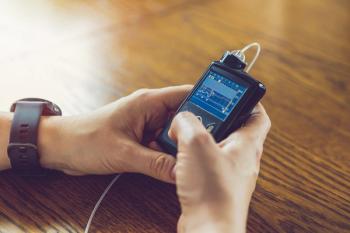
Integrated Health System Pharmacy Models Associated With Medication Adherence, Fewer Side Effects
Patient reported outcomes for were positive for those who filled medications at an integrated health system specialty pharmacy.
Patients who filled prescriptions in an integrated health systems specialty pharmacy model were likely to report low rates of missed medication doses and side effects, according to a poster presented at the American Society of Health-System Pharmacists (ASHP) Summer Meetings and Exhibition, held June 11-15, 2022, in Phoenix, Arizona.
In order to determine whether patient-reported outcomes are associated with patient-perceived medication effectiveness in a health-system specialty pharmacy setting, researchers conducted a single-center, retrospective analysis of patients prescribed specialty medications from rheumatology, multiple sclerosis, neurology, dermatology, or asthma and allergy clinics. Outcomes were assessed after the patient completed 2 medication refill questionnaires during a 3-month period (January to March 2020).
Primary study outcomes were the frequency of patient-reported outcomes related to perceived medication effectiveness, missed doses, and medication side effects. The researchers utilized electronic health records to collect demographic and prescribed medication data, while patient-reported outcomes and pharmacist intervention data were gathered from a specialty pharmacy patient management database.
The cohort included 1398 patients across 6 specialty pharmacy clinics (66% women; 86.5% White; mean age, 56 years). Just over 50% of patients were from the rheumatology clinic, while asthma and allergy patients represented only 3.3% of the patient population.
A total of 4125 medication refill questionnaires were completed, with a total of 172 missed doses were reported, most commonly due to instructions to hold medication for illness or medical procedures.
Patients reported side effects just 41 times (1%); most reported effectiveness as either good or excellent (72% and 25%, respectively). Among those who did not report side effects, odds of reporting higher effectiveness were 7.49 times higher than those who did (95% CI, 3.31-16.95). Similarly, patients who did not report a missed dose were 2.13 times more likely to report higher effectiveness (95% CI, 1.42-3.19).
“Patients filling specialty medication within an integrated health systems pharmacy model reported low rates of missed doses and side effects,” the researchers concluded. “Additionally, patients who did not report missed doses or side effects were significantly more likely to have higher perceived effectiveness of treatment.”
Reference
Bryan ED. Assessing patient-reported outcomes within an integrated health system specialty pharmacy. Presented at: American Society of Health-System Pharmacists Summer Meetings & Exhibition; June 11-15, 2022; Phoenix, AZ. Poster 40-M.
Newsletter
Pharmacy practice is always changing. Stay ahead of the curve with the Drug Topics newsletter and get the latest drug information, industry trends, and patient care tips.























